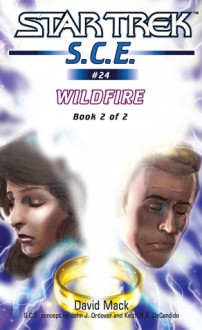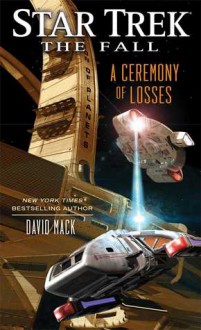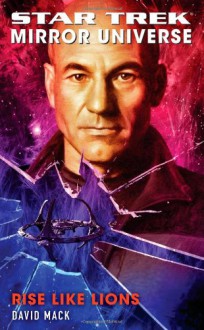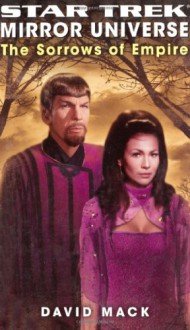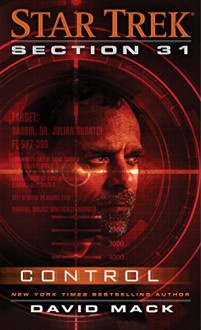
Bashir and Sarina learn of a secret programme that pervades systems throughout the Federation (and beyond) and has been in place for centuries. Nominally it registers threats and brings them to the attention of the authorities - but it has long since developed a mind of its own, acting on its own... and creating Section 31, calling itself Control. Bashir engages Data's help in finally bringing down this machine.
First of all, the idea of the machine Uraei reminded me awfully of Person of Interest. A machine that listens to everything and monitors everyone to evaluate threats and prevent them. Here, Uraei develops a mind of its own because it sees that the normal channels are too slow, too bogged down by bureaucracy to work efficiently. And so it creates its own hierarchy, its own agency that operates without oversight, and Section 31 is born (just like Samaritan back in PoI). And of course, shutting it down means infecting all copies and preventing the machine from downloading a saved original copy from a secure place. Again, like PoI. So, this part did not really seem very original, and didn't actually engage me all that much.
The only thing here that held my interest are the implications, like the machine allowing the Xindi attack for the higher purpose of trying to strengthen security and eventually form the UFP pretty much earth-dominated etc. So there are canon events orchestrated by Uraei, and that of course, puts Federation history as we know it in a new perspective.
So, Bashir, Sarina and Data try to put an end to a machine code that pervades everything, every computer, every system on starships, every local law enforcement - but how to actually expose and remove that all-powerful surveillance and indepently acting force without actually throwing the UFP into chaos? And what if that all-knowing machine that has planned events for centuries now, that has built layers upon layers of security around itself, is actually aware of what's going on... and just uses people for its purpose? Doesn't that put a new, and rather bleak spin on fate, how much is predestined and how much one can control and change his own fate?
I think that's where "Control" gets really interesting, not so much in the premise that is, after all, not really new, but in those far-reaching ramifications. It feels as though Bashir, Sarina and Data just play unknowingly in a giant holo-programme, a holo-programme that encompasses the whole universe, and only the machine knows what's really going on. A nightmare-ish scenario... but is it if you're not really aware of it? If you don't know anything about the machine or Section 31 (unlike Bashir, Sarina, Data and some other select people)?
Bashir and Sarina unknowingly fulfill their part in Control's machinations, fight a fight that they can't win, and suffer the consequences when Control pits them against each other. I have to admit that I haven't really cared all that much about Sarina, but her fate, and consequently Bashir's actually put a lump in my throat. Catatonic, Bashir ends up in Garak's care on Cardassia where "Enigma Tales" picks up the tale.
Actually, Garak's role is pretty small. He's one of the 3 persons (other than Sarina) who Bashir trusts in this situation, and his feelings towards Bashir become ever more overt. I'm wondering where this is going to lead. Other than that, Mack continues with Data's tale and Lal's development; and most importantly, some of the questionable missions of recent TrekLit years come to the light while fighting Control, such as Zife's removal from office and subsequent execution (and Picard's involvement), Section 31 trying to commit genocide against the Founders etc. It's going to be interesting to see the repercussions here.
Overall, a quite disturbing novel that takes a bit to gain steam. But once it does, Mack doesn't pull any punches, makes his usual twists and turns and puts his characters through the wringer. And the outlook on Federation politics may never be the same again - because who's really in charge?

 Log in with Facebook
Log in with Facebook 
